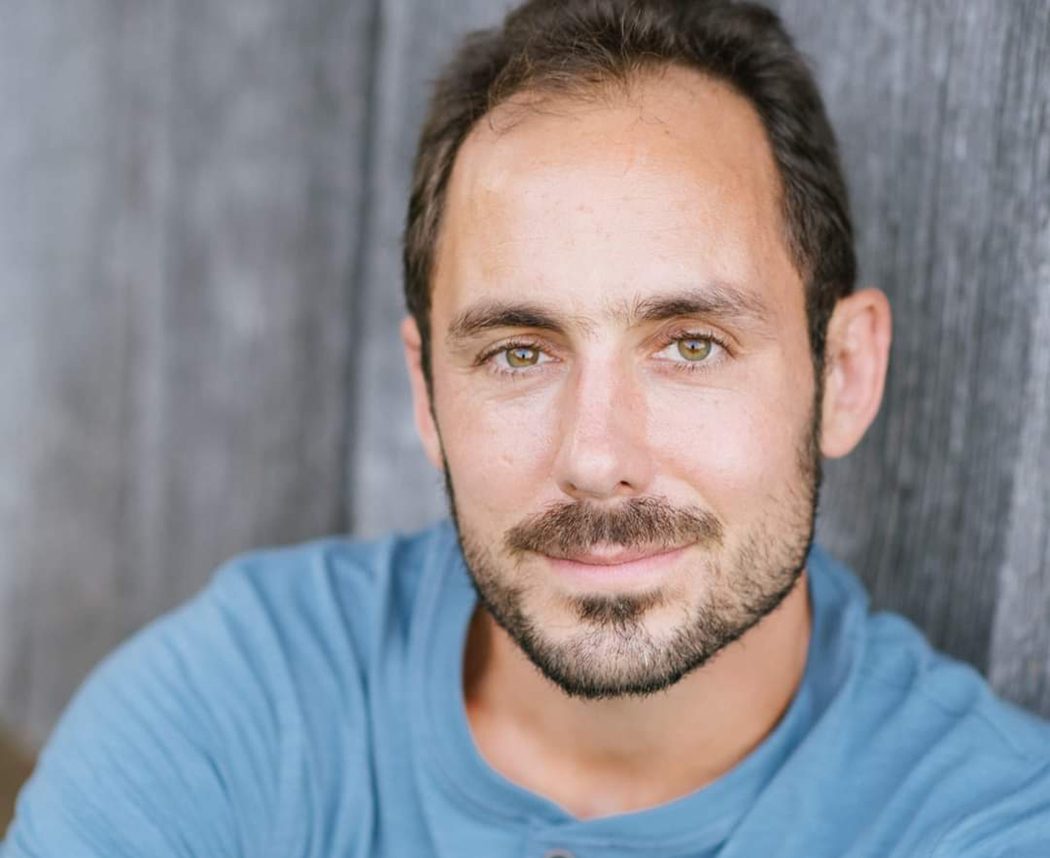Most of us associate TikTok with teenagers doing goofy dances. Charlottesville native Jesse Crosson, though, is using the platform to talk about something far more meaningful—criminal justice reform. Over the past year, Virginia has passed major legislation, like abolishing the death penalty and legalizing marijuana. Crosson, who was released in 2021 after nearly two decades of incarceration, is among the activists and organizers advocating for more critical reforms in the Old Dominion.
In 2002, struggling with substance abuse, Crosson was convicted of robbery and unlawful wounding in Albemarle County. Just days after his 18th birthday, he was sentenced to 32 years in prison—twice the maximum of sentencing guidelines.
While recovering from substance abuse, Crosson had a radical shift in perspective.
“My transformation was from having a self-centered view of the world, to recognizing my connection with, obligation to, and the benefits I receive from others,” he says.
Throughout his years in prison, Crosson led a variety of programs, including GED tutoring, mental health support, and yoga. He also became a licensed electrician, and a mentor for other incarcerated men. After 15 years of studying, he earned his bachelor’s degree in psychology from Ohio University in 2018.
In 2019, Crosson decided to petition for clemency. To his surprise, he received an outpouring of support from friends and family, as well as the general public. He met with multiple state leaders about his fight for clemency, and did interviews with the media.
On August 16, 2021, Crosson got the news he had been waiting nearly two decades to hear: Governor Ralph Northam granted him a conditional pardon, based on the excessiveness of his sentence, his age at the time of the crime, and his accomplishments.
“I went to a knee and started sobbing. I just lost my mind,” he says. “It went from zero to you’re getting out of prison today.”
Adjusting to life as a free man has been “really amazing,” says Crosson. Though he’s had some “really stressful times and difficult things happen,” he’s received an overwhelming amount of support—not a given for people coming out of prison, he emphasizes.
“I was really fortunate to have a place to stay, be able to get a job, and have transportation,” he says. “This is not something people should use for like toxic positivity to say, ‘everybody else can just pull themselves up by their bootstraps’ because that’s bullshit.”
Shortly after his release, Crosson created a TikTok account, @second_chancer, to share his experiences in prison, as well as advocate for criminal justice reforms. The account has since gained more than 500,000 followers, and features videos of Crosson casually recalling stories about the people he met and his process readjusting to the outside world.
Incarcerated people should have “the tools they need to succeed,” including emotional regulation skills, job training, and technological literacy, he says. He also hopes to see more support for victims of crimes, and changes to sentencing laws.
“You’ll have guys who get a five-year sentence, who are far worse when they get finished with that sentence, and are guaranteed to reoffend,” he says. “[Then] you have guys who get 50 years who after 10 years…have really turned their life around and are ready to reenter society but don’t have that opportunity.”
He says he’s received a wide range of responses to his TikTok, including positive comments that have made him “question and look at myself… I’ve also had some amazing exchanges with victims of crimes that were similar to mine. We’ve talked about our experiences, and it’s been really powerful and healing for both of us.”
Last month, he worked with a public defender on TikTok to collect clothes, food, and other necessities for people recently released from prison.
“It’s really encouraging that there is a capacity for some kind of action with this—it’s not just people sitting behind their keyboards talking about things,” he says.
On social media, Crosson has also discussed his relationship with local journalist (and former C-VILLE editor) Courteney Stuart, who did a story about his fight for clemency for CBS19 in 2019. Stuart later came to Crosson for advice about a personal issue, and began talking with him on the phone regularly. They soon became close friends—and eventually fell in love.
“We developed this amazing relationship without ever having stepped foot in the same room together,” says Crosson. “It’s been the healthiest and most gratifying relationship of my life.”
With Stuart, Crosson started the Pri-Zen podcast, which discusses a variety of issues within the criminal justice system. He is also working on a book proposal, and networking with local and state leaders to “find a way forward.” Crosson says he would like to go to grad school to become a licensed counselor or psychologist, and has also considered starting a nonprofit that provides re-entry services.
From his advocacy work, Crosson ultimately hopes that people will learn to “humanize everyone” and recognize that people are not “irredeemable.”
“There’s a failure to understand that we are not simple, rational creatures,” he says. “The vast majority of crimes that I saw committed were committed…as a result of trauma and really difficult circumstances.”
